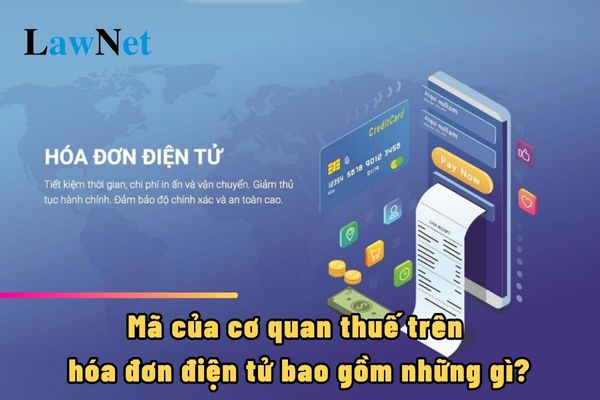What does the Vietnam tax authority’s authentication code on e-invoices include?
What does the Vietnam tax authority’s authentication code on e-invoices include?
According to Clause 2, Article 3 of Decree 123/2020/ND-CP, it is regulated as follows:
Definitions
In this Decree, the following terms are understood as follows:
1. Invoice is an accounting document created by an organization or individual selling goods or providing services, recording information about the sale of goods or provision of services. The invoice is presented in the form of an e-invoice or an invoice printed by the tax authority.
2. An e-invoice is an invoice with or without a tax authority’s authentication code presented in e-data form, created by an organization or individual selling goods or providing services using e-means to record information about the sale of goods or provision of services according to the regulations of the law on accounting and the law on tax, including cases where the invoice is generated from a cash register connected to the e-data portal of the tax authority, in which:
a) An authenticated e-invoice is an e-invoice where the tax authority provides the code before the organization or individual selling goods or providing services sends it to the buyer.
The tax authority’s authentication code on the e-invoice includes a transaction number, which is a unique sequence created by the tax authority's system and a string of characters encrypted by the tax authority based on the seller's information recorded on the invoice.
b) An unauthenticated e-invoice is an e-invoice created by the organization selling goods or providing services sent to the buyer without the tax authority's code.
The tax authority’s authentication code on the e-invoice includes a transaction number, which is a unique sequence created by the tax authority's system and a string of characters encrypted by the tax authority based on the seller's information recorded on the invoice.
Thus, the tax authority’s authentication code on the e-invoice is a unique sequence created by the tax authority's system and a string of characters encrypted by the tax authority based on the seller's information recorded on the invoice.

What does the Vietnam tax authority’s authentication code on e-invoices include? (Image from the Internet)
What is the dignificance of the tax authority’s authentication code for e-invoices in Vietnam?
According to Article 89 of the Law on Tax Administration 2019, it is regulated as follows:
E-Invoice
1. An e-invoice is an invoice with or without a tax authority’s authentication code presented in e-data form, created by an organization or individual selling goods or providing services, recording information about the sale of goods or provision of services according to the regulations of the law on accounting and the law on tax using e-means, including cases where the invoice is generated from a cash register connected to the e-data portal of the tax authority.
2. An e-invoice includes value-added tax invoices, sales invoices, e-stamps, e-tickets, e-cards, e-receipts, e-delivery notes for transported goods, or other named e-documents.
3. An authenticated e-invoice is an e-invoice where the tax authority provides the code before the organization or individual selling goods or providing services sends it to the buyer.
The tax authority’s authentication code on the e-invoice includes a transaction number, which is a unique sequence created by the tax authority's system and a string of characters encrypted by the tax authority based on the seller's information recorded on the invoice.
4. An unauthenticated e-invoice is an e-invoice created by the organization selling goods or providing services sent to the buyer without the tax authority's code.
5. the Government of Vietnam specifies the details of this Article.
Thus, according to the above regulation, it can be understood that the tax authority’s authentication code on e-invoices plays a very important role in tax administration, ensuring transparency and accuracy in economic transactions.
Besides, an e-invoice is an invoice with or without a tax authority’s authentication code presented in e-data form.
What are the principles for issuing a tax authority’s authentication code on e-Invoices in Vietnam?
According to Article 90 of the Law on Tax Administration 2019, it is regulated as follows:
Principles for Creating, Managing, and Using e-Invoices
1. When selling goods or providing services, the seller must create an e-invoice to hand over to the buyer according to the standard data format and must fully record the contents as prescribed by the law on tax and the law on accounting, regardless of the value of each sale of goods or provision of services.
2. If the seller uses a cash register, the seller must register to use an e-invoice generated from a cash register connected to the e-data portal of the tax authority.
3. The registration, management, and use of e-invoices in transactions of selling goods or providing services must comply with the provisions of the law on e-transactions, the law on accounting, and the law on tax.
4. The issuance of the tax authority’s authentication code on e-invoices is based on the information provided by businesses, economic organizations, other organizations, business households, and individual businesses on the invoice. Businesses, economic organizations, other organizations, business households, and individual businesses are responsible for the accuracy of the information on the invoice.
5. the Government of Vietnam specifies the details of this Article.
Thus, according to the principles for issuing a tax authority’s authentication code on e-invoices, the issuance of the tax authority’s authentication code on e-invoices is based on the information provided by businesses, economic organizations, other organizations, business households, and individual businesses on the invoice. Businesses, economic organizations, other organizations, business households, and individual businesses are responsible for the accuracy of the information on the invoice.

